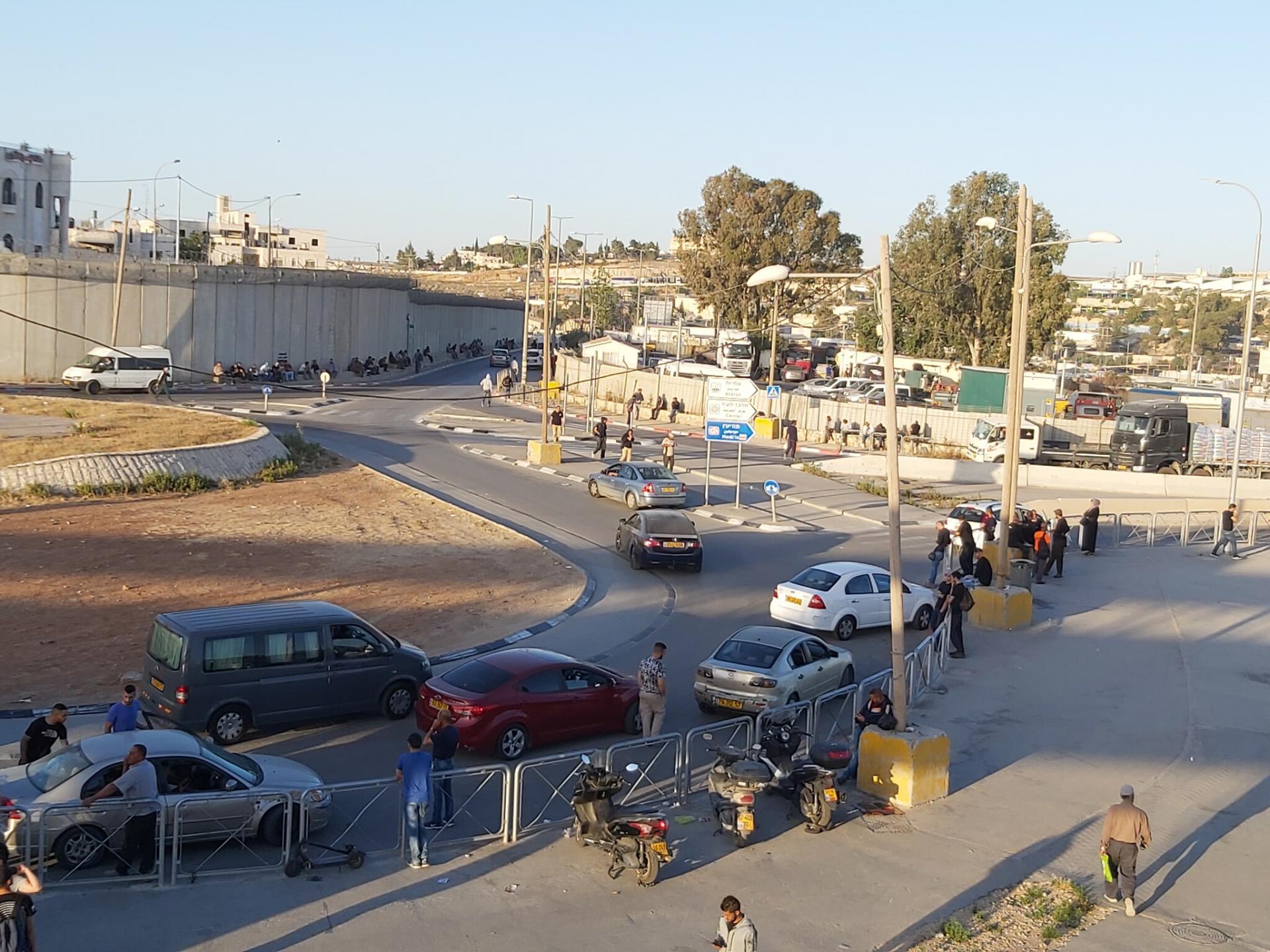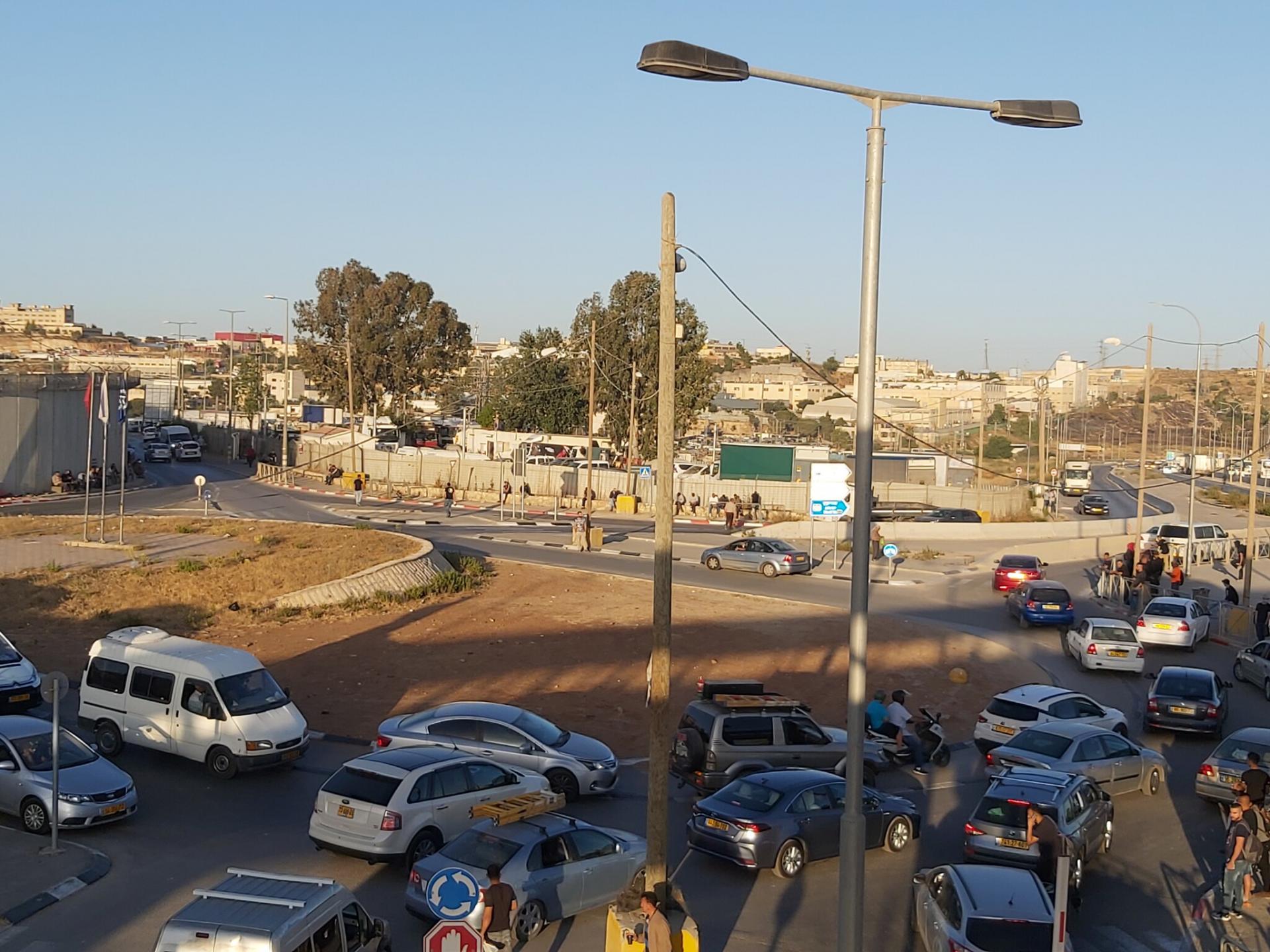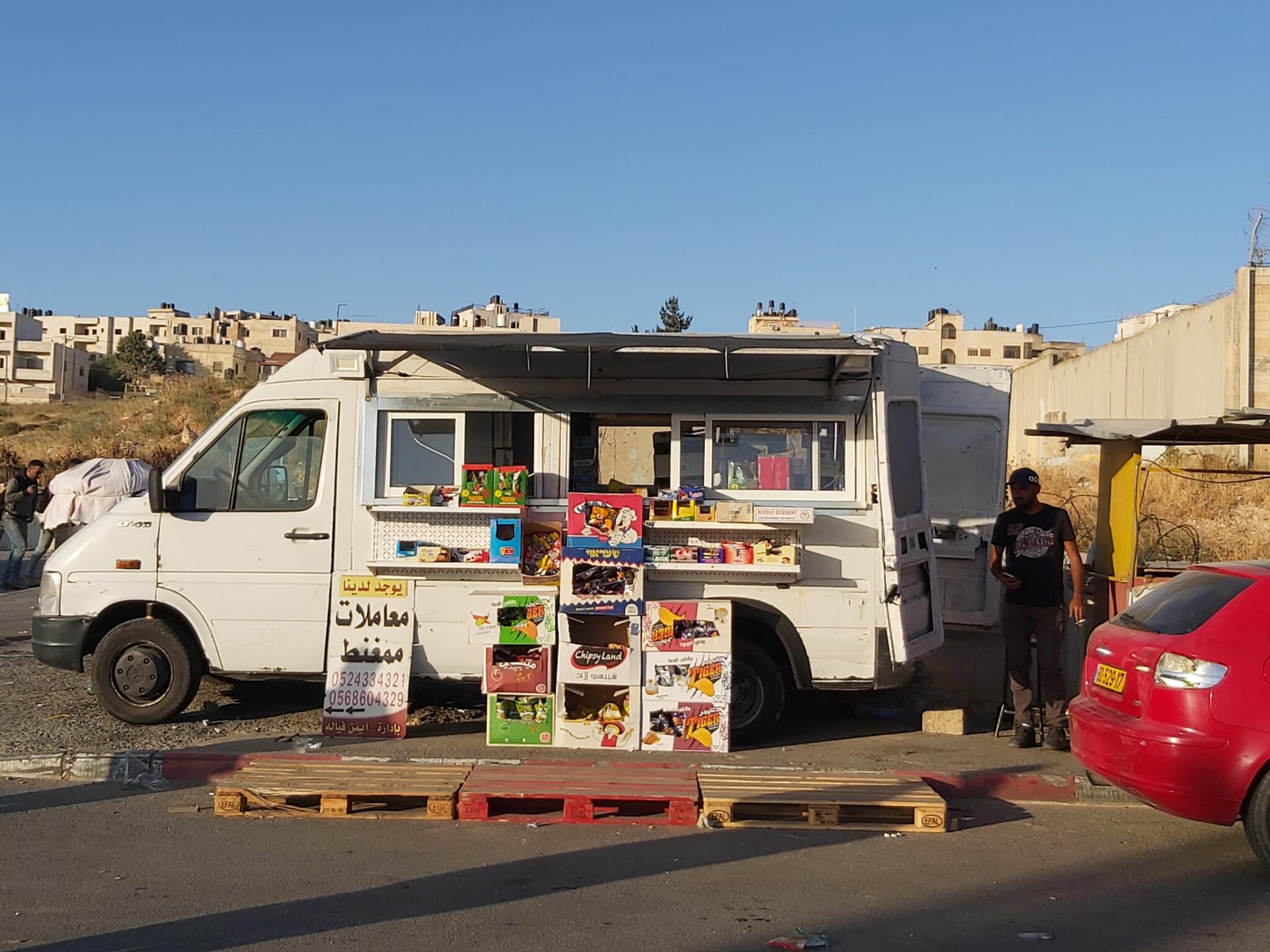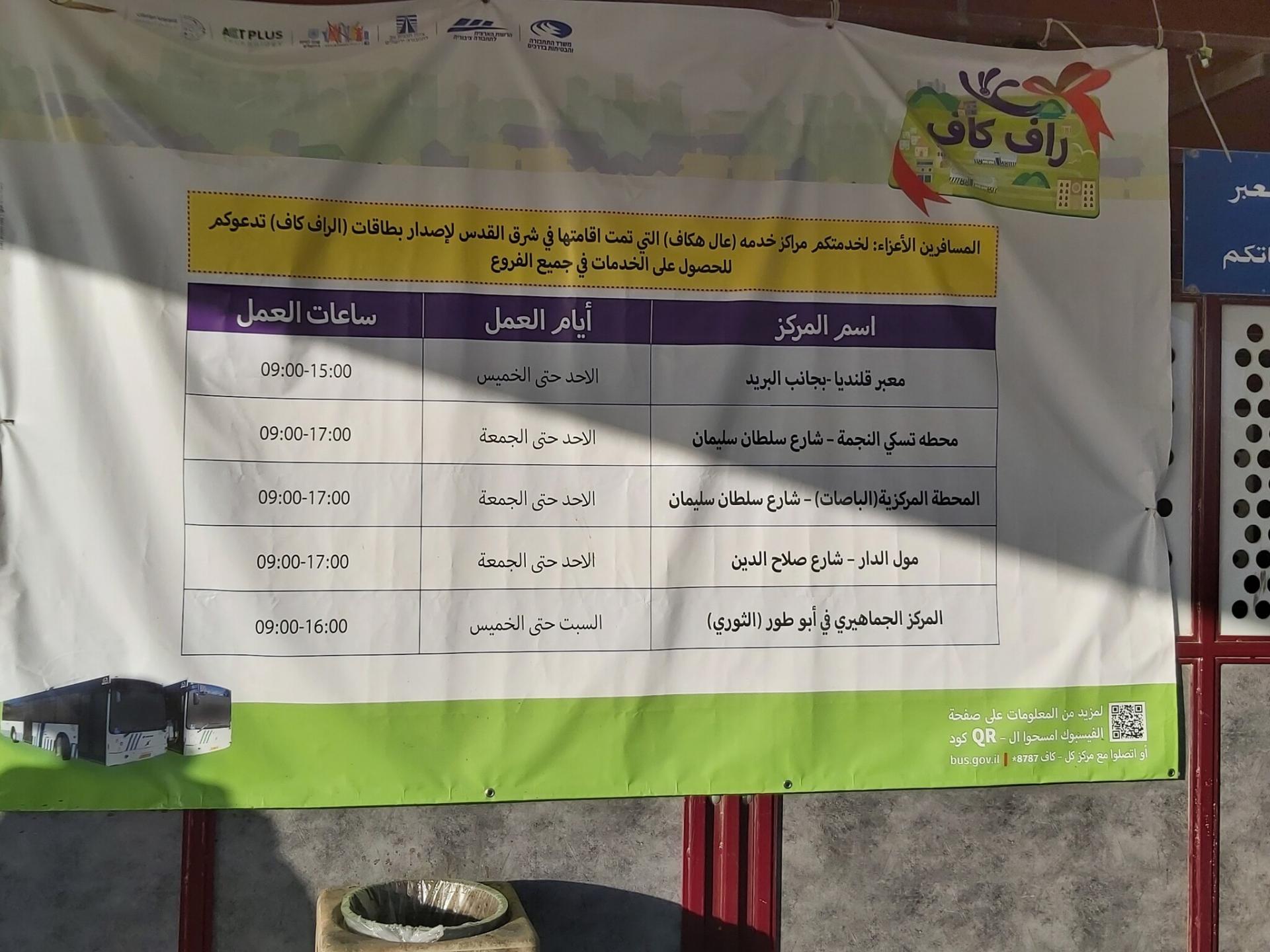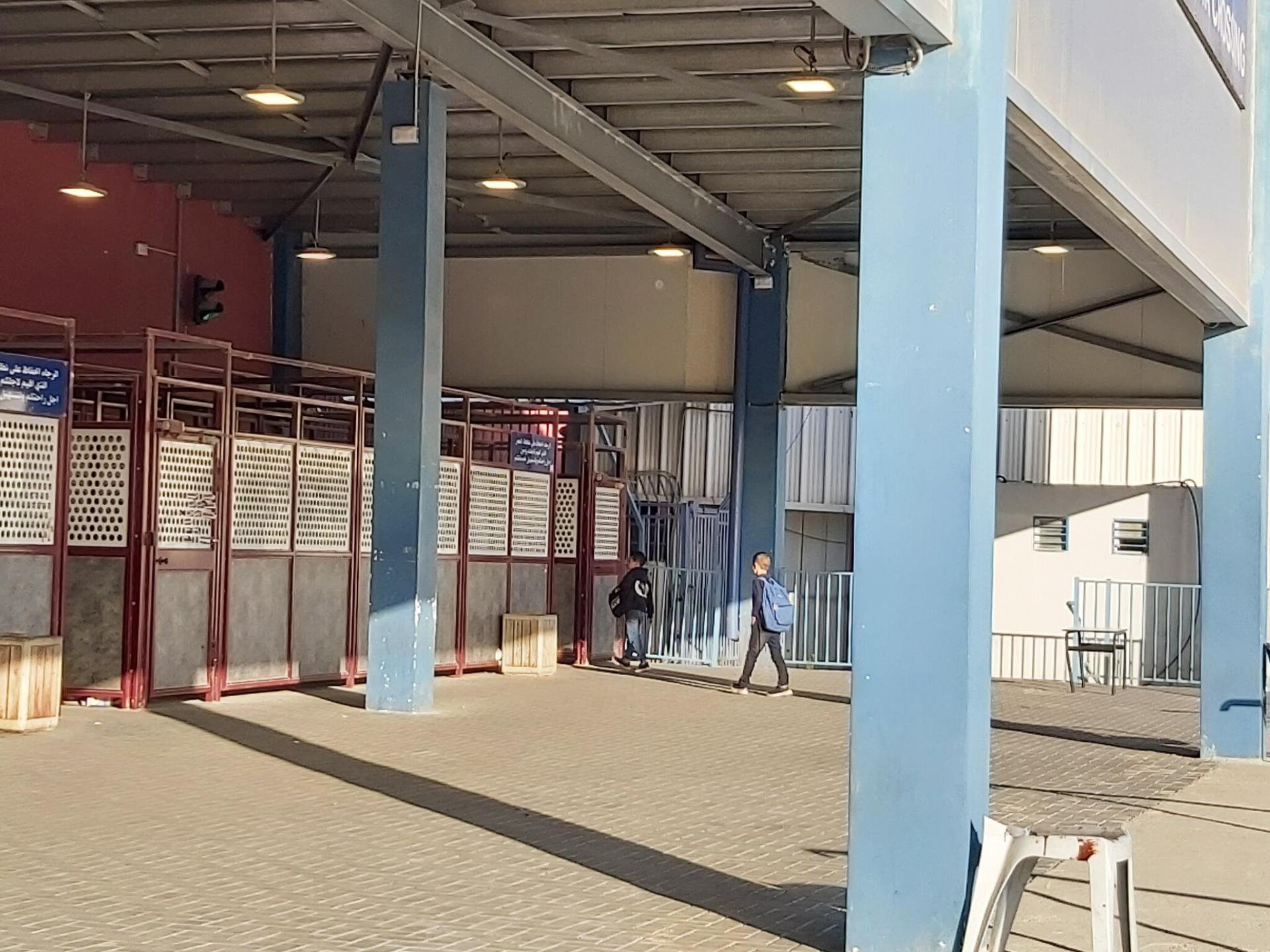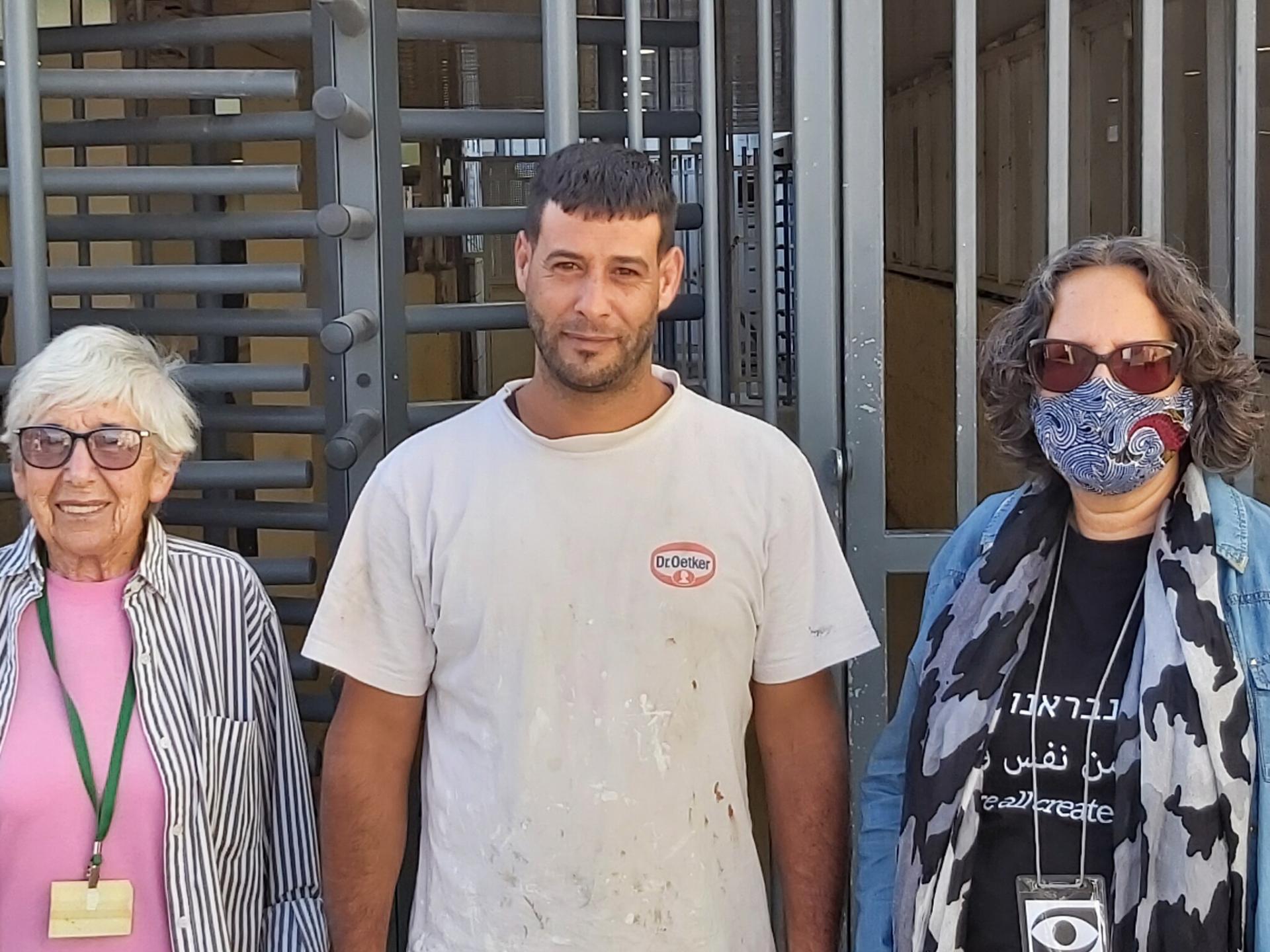Qalandiya - New arrangement with a multi-line card for residents of East Jerusalem.
A quiet morning at Qalandiya.
06.15. On the Jerusalem side, there are already many people on the stone benches along the pavement and next to the wall, waiting for transport to work. In the square are many vehicles, those coming out of the checkpoint and others circling after picking up workers. We are greeted warmly.
In the checkpoint area, all is calm. The three entrances are open and everyone arriving enters immediately.
There seems to be an important innovation in east Jerusalem - an arrangement for residents to use the RavKav card " .. it will be possible to pay by RavKav for public transport in east Jerusalem, with relevant reductions for those eligible and also the ability to transfer between transport systems in east and west Jerusalem within 90 minutes without extra charge." ( from the Municipality's explanation).
The poster gives information about the location of RavKav service stations and their hours. One such is located here at the checkpoint next to the post office. When we entered the 'slalom' (passageway leading to the checking stations) we saw many information leaflets that had been distributed and then discarded.
We met our friend Abu Ramzi, the beigel seller – happy to meet one another after the long Ramadan break, an absence extended because of the war. We had heard that in some places in the West Bank people did not venture to work in Israel as they were afraid to be in the cities, but Abu Ramzi said that people passed at Qalandiya as usual. He now brings smaller stock (60 beigels with eggs and falafel) and as soon as he has sold all, goes home.
A middle-aged man who sells masks approached us. He says he is a tour guide, at the Kotel and on Temple Mount, guiding Moslems but mostly Christians. While chatting, we hear shots in the distance. We get a fright, but Abu Ramzi and his friend aren't disturbed. The shooting continues and we wonder if this is live fire (as it sounds to our untrained ears). Abu Ramzi explains that he no longer pays attention. He wants only to earn a living and return home safely. Meanwhile, he sells his last beigel and departs.
The kiosk has returned to its old spot, this time inside a van. It was too hot to drink tea. But we saw from afar Ayman directing the parking in the parking lot that he controls. We returned to the checkpoint building. The covered area was now getting full sun and we looked in vain for shade. We saw small children arriving on their own. Apparently, they squeezed through the fences – two little boys and a girl, with schoolbags. They seemed to be waiting for someone and did not enter the slalom. We assumed they were waiting for an adult but then saw they were joined by a fattish boy who probably hadn't been able to squeeze his way through the bars. When they saw him coming, they entered the slalom. And so the four young children passed together to go to school.
At about 7 we entered the checkpoint building and saw the RavKav leaflets scattered on the floor of the slalom, as well as many cigarette stubs where people put out their cigarettes before entering the checkpoint proper. Inside, most of the checking machines were open and passage was quick.
As we passed through the checking we met Y., a young man for whom we [i.e., Ronit] had presented an appeal after his request to cancel his 'entry refusal' was rejected. In response to the appeal, the State did not agree to cancel the refusal but agreed to give him permission to enter Givat Zeev where he had worked before being "refused." The appeal was cancelled, but the promised permission did not arrive. Our lawyer had to make an additional request to Court so that he finally could get it. After a while the permission was out-of-date but the authorities would not extend it, and he was still "refused." We once again appealed and again the 'refused" status was not cancelled but he was given permission to enter Givat Zeev. This permission he did receive, but a few weeks ago he started having problems entering. He would be delayed for shorter or longer times, and sometimes even refused entry through he appeared on the computer records. He would approach the D.C.O. to find out what the problem was, only to be told that the decision was made by the commander of the checkpoint. Why? That's how it is! Because we can. Approaches to the State Attorney don't help and our lawyer has to submit another request to Court to honour the ruling. This caused the State Attorney to ensure that all the sections of government should be coordinated so that the young man could cross the checkpoint. Since the beginning of the week, he has been passing the electronic[O1] machine without problems. It is beyond our understanding why he is still "refused entry" status although he is given permission. The young man lives in Bidu but cannot pass at Jib which is close to Pisgat Zeev. So he has to travel each morning to Qalandiya, pass there, and then travel back to Pisgat Zeev (next door to Bidu!) – totally absurd! After all, if he wanted to do something bad he could reach anywhere after passing Qalandiya … Soon he will be able again to apply for release from the "refusal" (allowed once a year) – and let's hope that this time they will finally cancel it.
[O1]a

